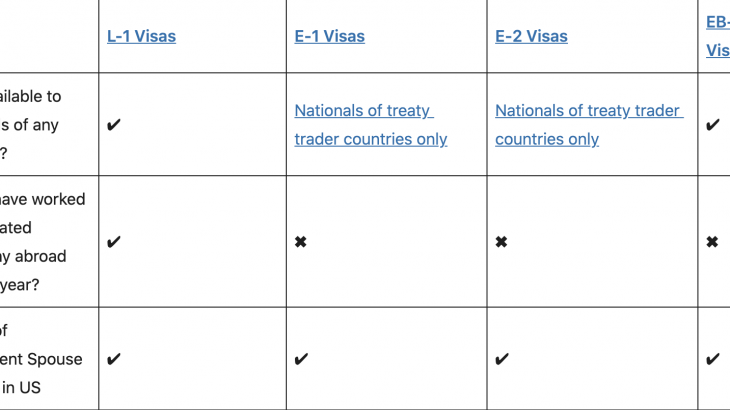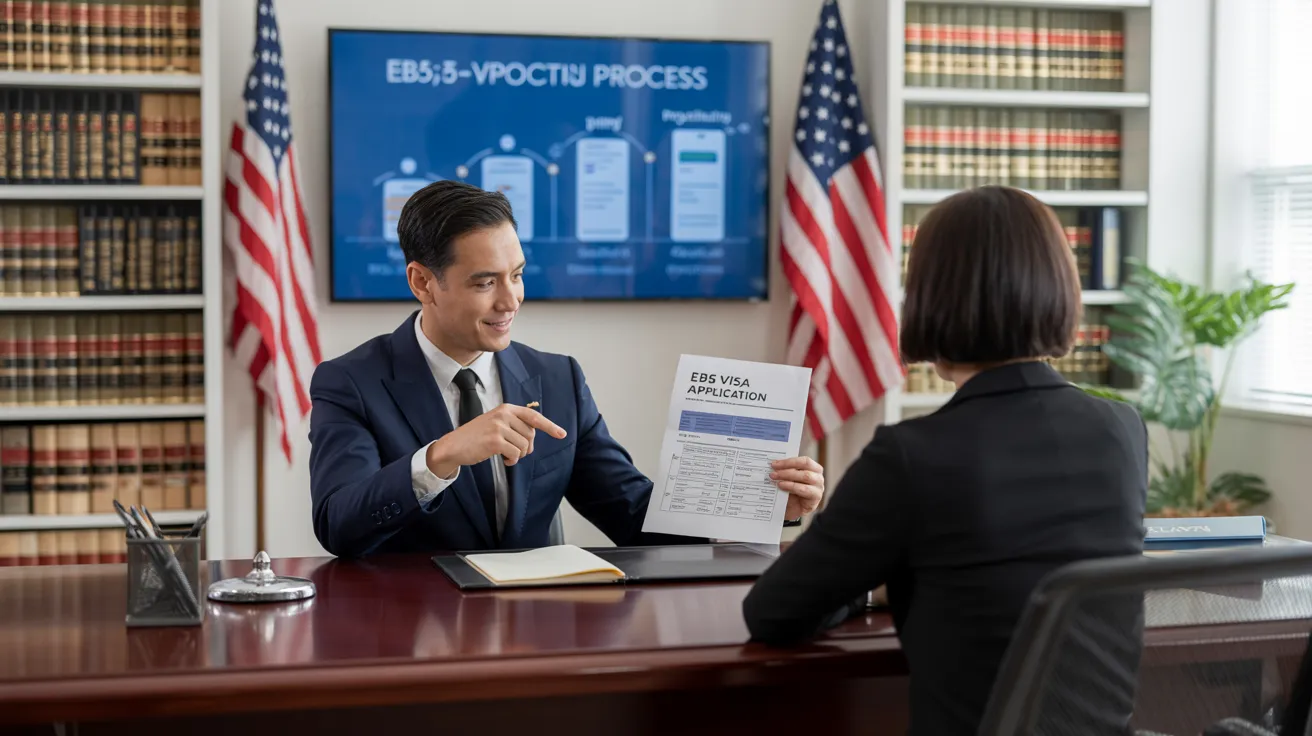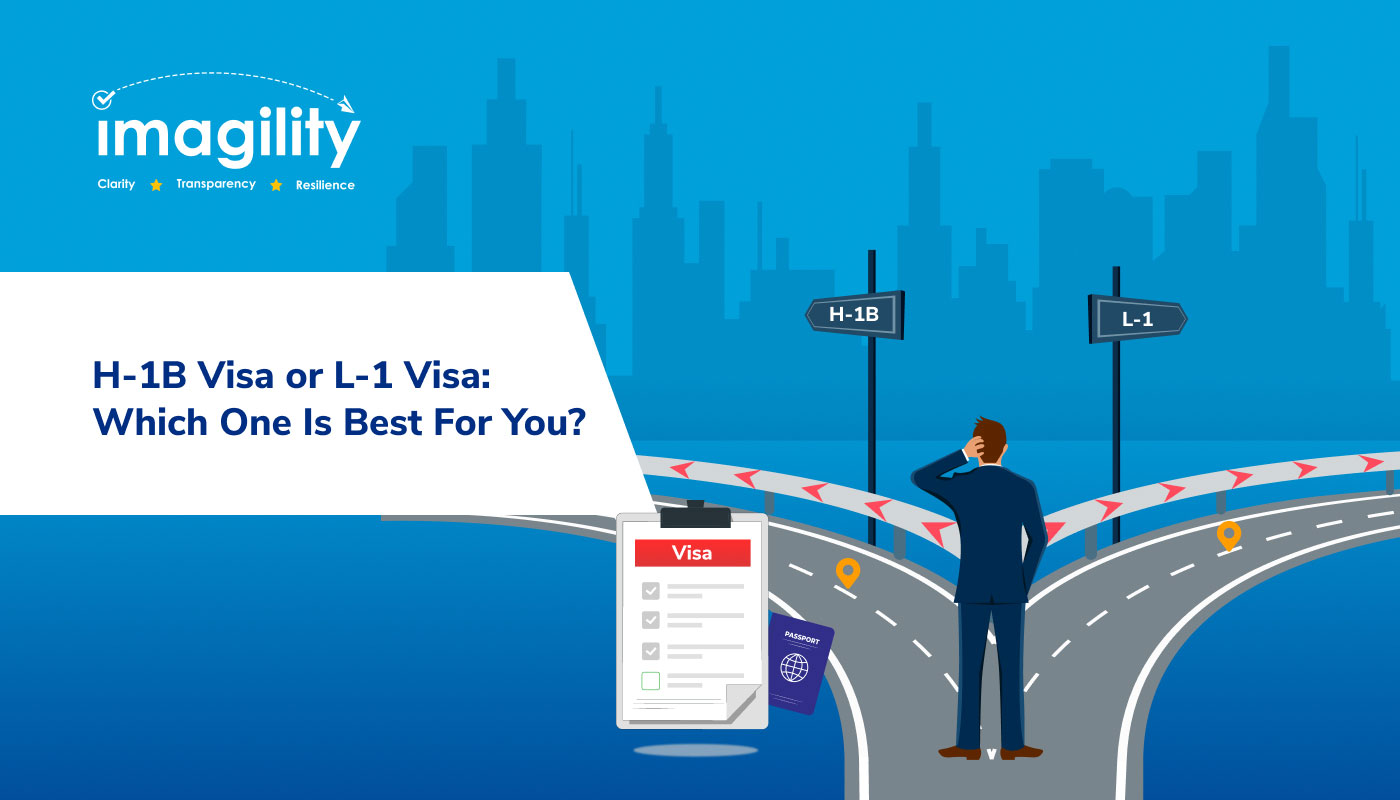Some Known Details About L1 Visa
Table of ContentsLittle Known Facts About L1 Visa.L1 Visa Things To Know Before You BuyThe Only Guide for L1 Visa6 Simple Techniques For L1 VisaL1 Visa Things To Know Before You BuySome Of L1 Visa
Available from ProQuest Dissertations & Theses Global; Social Scientific Research Premium Collection. (2074816399). (PDF). Congress. (PDF). DHS Workplace of the Examiner General. (PDF). (PDF). "Nonimmigrant Visa Stats". Obtained 2023-03-26. Department of Homeland Security Office of the Assessor General, "Review of Susceptabilities and Potential Abuses of the L-1 Visa Program," "A Mainframe-Size Visa Technicality".
United State Division of State. Recovered 22 August 2016. "Employees paid $1.21 an hour to set up Fremont tech firm's computers". The Mercury Information. 2014-10-22. Retrieved 2023-02-08. Costa, Daniel (November 11, 2014). "Obscure short-lived visas for foreign technology workers depress incomes". The Hill. Tamen, Joan Fleischer (August 10, 2013). "Visa Holders Change Employees".
L1 Visa Can Be Fun For Everyone
In order to be eligible for the L-1 visa, the international business abroad where the Beneficiary was used and the United state firm must have a qualifying connection at the time of the transfer. The different kinds of qualifying connections are: 1.
Instance 1: Firm A is integrated in France and employs the Beneficiary. Business B is incorporated in the U.S. and intends to petition the Recipient. Business A has 100% of the shares of Company B.Company A is the Moms And Dad and Company B is a subsidiary. There is a certifying connection between the 2 companies and Firm B must be able to sponsor the Beneficiary.
Instance 2: Firm A is incorporated in the united state and wants to request the Beneficiary. Business B is integrated in Indonesia and employs the Recipient. Company A possesses 40% of Business B. The continuing to be 60% is possessed and controlled by Firm C, which has no relationship to Business A.Since Company A and B do not have a parent-subsidiary partnership, Company A can not fund the Beneficiary for L-1.
Example 3: Business A is included in the U.S. and intends to petition the Recipient. Company B is included in Indonesia and utilizes the Recipient. Business An owns 40% of Firm B. The remaining 60% is owned by Business C, which has no relation to Business A. Nevertheless, Company A, by formal contract, controls and full manages Company B.Since Firm A possesses much less than 50% of Firm B yet manages and manages the business, there is a certifying parent-subsidiary connection and Firm A can fund the Beneficiary for L-1.
Unknown Facts About L1 Visa
Affiliate: An affiliate is 1 of 2 subsidiaries thar are both owned and managed by the same moms and dad or individual, or possessed and controlled by the same team of individuals, in primarily the exact same proportions. a. Instance 1: Business A is incorporated in Ghana and uses the Recipient. Business B is included in the united state
Business C, also incorporated L1 Visa law firm in Ghana, owns 100% of Firm A and 100% of Company B.Therefore, Business A and Firm B are "affiliates" or sister companies and a certifying partnership exists between the two companies. Company B ought to have the ability to sponsor the Beneficiary. b. Example 2: Business A is incorporated in the U.S.
Company A is 60% owned by Mrs. Smith, 20% owned by Mr. Doe, and 20% possessed by Ms. Brown. Company B is integrated in Colombia and currently employs the Beneficiary. Firm B is 65% possessed by Mrs. Smith, 15% possessed by Mr. Doe, and 20% owned by Ms. Brown. Company A and Firm B are affiliates and have a qualifying relationship in two various ways: Mrs.
The L-1 visa is an employment-based visa classification established by Congress in 1970, permitting multinational firms to move their managers, executives, or vital workers to their U.S. operations. It is frequently referred to as the intracompany transferee visa.

Furthermore, the recipient has to have operated in a supervisory, exec, or specialized worker setting for one year within the three years preceding the L-1A application in the foreign company. For brand-new workplace applications, international work should have been in a managerial or executive capability if the recipient is coming to the United States to work as a supervisor or executive.
The Best Strategy To Use For L1 Visa

If approved for a united state company functional for greater than one year, the initial L-1B visa is for up to three years and can be prolonged for an added two years (L1 Visa). On the other hand, if the U.S. company is freshly developed or has been functional for less than one year, the initial L-1B visa is provided for one year, with expansions available in two-year increments
The L-1 visa is an employment-based visa group established by Congress L1 Visa guide in 1970, allowing multinational companies to move their managers, executives, or key employees to their U.S. procedures. It is commonly referred to as the intracompany transferee visa.
See This Report about L1 Visa
Additionally, the beneficiary needs to have operated in a supervisory, exec, or specialized employee setting for one year within the three years preceding the L-1A application in the foreign company. For new office applications, international work has to have remained in a supervisory or executive capacity if the recipient is coming to the USA to function as a supervisor or exec.
for approximately seven years to get started manage the operations of the U.S. associate as an exec or supervisor. If provided for a united state business that has actually been functional for more than one year, the L-1A visa is originally granted for as much as three years and can be prolonged in two-year increments.
If provided for an U.S. business operational for even more than one year, the initial L-1B visa is for up to three years and can be extended for an added two years. On the other hand, if the U.S. company is recently established or has been operational for less than one year, the first L-1B visa is provided for one year, with expansions offered in two-year increments.